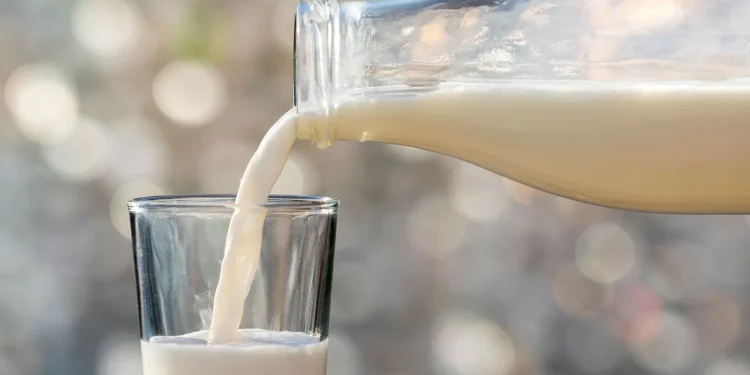A growing number of dairy farms across Southampton, Hampshire and Isle of Wight are declaring themselves “Bovaer-free” amid mounting public concern over the controversial methane-reducing feed additive. Many dairy farmers have taken to social media to state that their farms “do not, and never will, use Bovaer,” as consumer awareness and debate around the additive intensifies.
In response to growing consumer interest in traditional farming methods, several dairy farms across Hampshire and Southampton have publicly declared their commitment to Bovaer-free milk production.
Michelmersh Dairy Ltd, one of the region’s established dairy producers, has confirmed they do not use Bovaer or any other methane suppressants in their cow’s diets. Instead, they focus on traditional feeding practices that prioritize natural ingredients.
Among the region’s sustainable dairy producers, Dandy’s Ford Dairy has garnered attention for their commitment to ethical farming practices. Their milk, available through local collection points and delivery services, emphasizes sustainability and traditional dairy farming methods.
The movement toward Bovaer-free dairy production comes amid national discussions about feed additives in the UK dairy industry. While Bovaer has received approval from UK and EU Food Safety Authorities, many local farmers are choosing to maintain traditional feeding practices.
Daisy Meadow Dairy, a family-run micro dairy in the region, represents the new generation of farmers committed to traditional methods. As first-generation farmers, they’ve built their reputation on maintaining natural farming practices while developing their pedigree herd.
Local milk delivery services are also joining the movement, with Milk & More confirming that their independent dairy farmers do not use Bovaer additives in their production methods. This commitment to traditional farming practices reflects a growing consumer preference for conventionally produced dairy products.
Consumers interested in sourcing Bovaer-free dairy can find these products through local farm shops, direct delivery services, and farmers’ markets throughout Southampton and Hampshire. Many farms welcome visitors and maintain transparent farming practices, allowing customers to see firsthand how their dairy products are produced.
Bovaer, a feed supplement developed by DSM-Firmenich, has become a focal point of controversy in British dairy farming. The additive works by suppressing an enzyme in cows’ rumens that forms methane, with manufacturers claiming it can reduce methane emissions by approximately 30% in dairy cattle. However, its planned implementation has sparked significant public backlash and concerns about food safety.
The controversy has intensified following revelations that all ‘suitable’ British cattle could be given Bovaer or similar products by law by 2030, leading to a surge in farms explicitly positioning themselves as Bovaer-free. This movement has gained particular traction in Hampshire’s traditional dairy farming communities.
While regulatory authorities maintain the additive’s safety, with the Food Standards Agency stating there are no safety concerns when Bovaer is used at approved doses, public skepticism persists. Britain’s largest dairy co-operative recently faced significant consumer backlash over plans to trial the methane-suppressing feed additive, highlighting the depth of public concern.
Environmental organizations have also weighed in on the debate. The World Animal Protection UK has raised questions about the hidden costs of Bovaer, suggesting that while methane reduction is crucial for addressing climate change, the long-term implications of feed additives need careful consideration.
Scientists emphasize that no traces of Bovaer or its compounds remain in milk or other dairy products, as they are broken down in the cow’s stomach. However, this has done little to allay public concerns, with some consumers calling for greater transparency in dairy production methods and clearer labeling of products from farms using methane-reducing additives.
Local dairy farmers choosing to remain Bovaer-free argue that traditional farming methods and natural approaches to reducing environmental impact should be prioritized. These include improved grazing management, enhanced feed efficiency, and other sustainable farming practices that don’t rely on chemical additives.
As the debate continues, Hampshire’s dairy industry finds itself at a crossroads between environmental obligations and consumer preferences, with the Bovaer-free movement gaining momentum as a response to public concerns about food production methods.

































